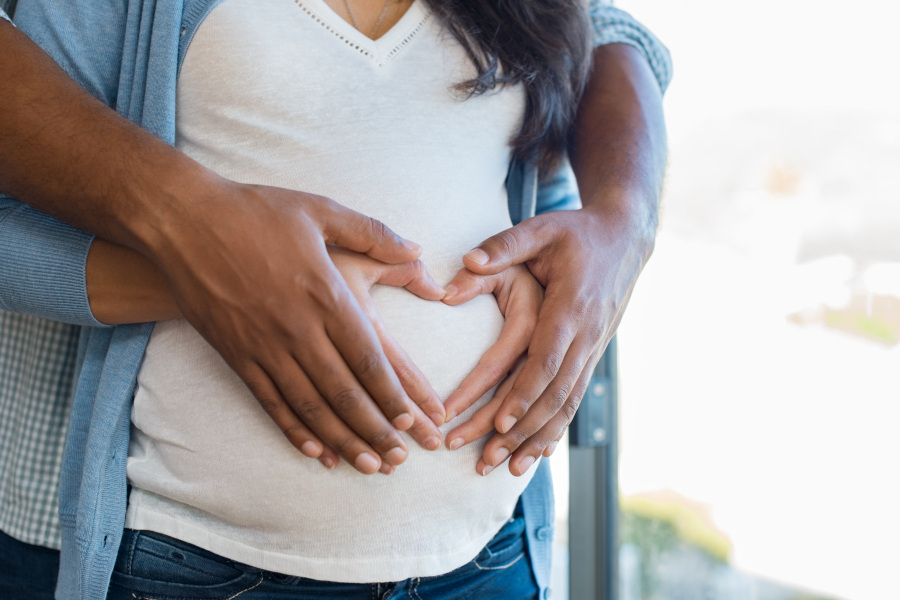Pregnancy is an exciting journey filled with new experiences, emotional highs, and important changes in your body. It typically lasts about 40 weeks and is divided into three distinct stages known as trimesters. Each trimester brings different symptoms, milestones, and medical checkups—especially when it comes to ultrasounds and prenatal tests.
Understanding what to expect during each trimester can help you feel more prepared and confident as your pregnancy progresses. In this blog, we will walk you through what typically happens during each trimester, how your body and baby develop, and what kinds of scans and tests are usually performed.
First Trimester (Weeks 1–12)
What Happens in Your Body
The first trimester starts on the first day of your last menstrual period—even before conception—and lasts through week 12 of the pregnancy. This stage includes some of the most crucial developments, as the baby’s major organs and structures begin to form.
Common symptoms during the first trimester include:
- Fatigue
- Nausea or morning sickness
- Breast tenderness
- Frequent urination
- Mood swings
- Food aversions or cravings
Hormones like hCG (human chorionic gonadotropin) and progesterone increase rapidly, supporting the early stages of pregnancy but also causing many of these early symptoms.

Baby’s Development
During the first trimester, your baby grows from a tiny group of cells into a small fetus about 2–3 inches long. The baby’s heart starts beating, and basic structures for the brain, spinal cord, arms, and legs are forming.
Tests and Ultrasounds in the First Trimester
- First Ultrasound (6–9 weeks): Often called a “dating scan,” this ultrasound confirms the pregnancy, checks for a heartbeat, and estimates your due date. A transvaginal ultrasound may be used at this early stage for clearer imaging.
- Blood and Urine Tests: These check your overall health, blood type, immunity to certain diseases, and screen for infections or anemia.
- Genetic Screening (optional): Some parents opt for early genetic screening around weeks 10–12, including Non-Invasive Prenatal Testing (NIPT) or nuchal translucency screening, which measures fluid at the back of the baby’s neck.
What to Expect Emotionally
The first trimester can be emotionally challenging. You may feel overwhelmed, especially if it is your first pregnancy. Between hormonal changes and adjusting to the idea of parenthood, it is completely normal to feel a mix of joy, anxiety, and even fear. Rest, self-care, and open conversations with your partner or doctor can help you adjust.
Second Trimester (Weeks 13–27)
What Happens in Your Body
The second trimester is often called the “honeymoon phase” of pregnancy. For many, early symptoms like nausea and fatigue start to fade, and energy levels begin to rise. This is also when the baby bump becomes more noticeable.
Typical second trimester symptoms include:
- Reduced morning sickness
- Round ligament pain (due to uterine stretching)
- Heartburn or indigestion
- Visible belly growth
- Feeling the baby move (usually between 18–22 weeks)
Baby’s Development
By the second trimester, the baby is growing rapidly. Organs continue to mature, bones harden, and hair, eyelashes, and fingernails begin to form. You might even begin to feel little flutters or kicks—an exciting moment known as quickening.
By 20 weeks, the baby is about 6.5 inches long and may even respond to sound.

Tests and Ultrasounds in the Second Trimester
- Anatomy Scan (18–22 weeks): This is a detailed ultrasound that checks the baby’s organs, spine, limbs, and face. It also examines the placenta, amniotic fluid, and cervix. This is often when the baby’s sex can be identified if you choose to know.
- Quad Screen or Second-Trimester Genetic Tests (15–20 weeks): These blood tests check for certain conditions like Down syndrome and spina bifida.
- Glucose Screening Prep: While the glucose test is often done in the early third trimester, some doctors may schedule it toward the end of the second trimester to check for gestational diabetes.
What to Expect Emotionally
Many expectant parents report feeling more relaxed and energized during the second trimester. As your baby’s kicks become stronger and more regular, the pregnancy can start to feel more “real.” This is a great time to start preparing your nursery, attending prenatal classes, and building a support network.
Third Trimester (Weeks 28–40)
What Happens in Your Body
As you enter the third trimester, your body continues to adapt to your growing baby. Discomfort can return as you approach labor and delivery.
Common third trimester symptoms include:
- Backaches and pelvic pressure
- Braxton Hicks contractions (practice contractions)
- Swelling in hands, feet, or ankles
- Trouble sleeping
- Shortness of breath (due to the baby pressing against your diaphragm)
Your body is also getting ready for delivery—your cervix may begin to thin (efface) and open (dilate), especially in the final weeks.
Baby’s Development
During the third trimester, your baby grows from about 2.5 pounds to 6–9 pounds (on average). The lungs and brain mature, fat builds under the skin, and your baby begins to practice breathing and swallowing. Around week 36, most babies turn head-down in preparation for birth.

Tests and Ultrasounds in the Third Trimester
- Growth Ultrasound (28–36 weeks): Depending on your pregnancy, your doctor may order a growth scan to check the baby’s size, position, and fluid levels.
- Non-Stress Test (NST): If there are any concerns about the baby’s movements or health, this test monitors the baby’s heart rate in response to movement.
- Group B Strep Test (35–37 weeks): This is a swab test to check for a common bacterial infection that could be passed to the baby during delivery.
- Cervical Checks (final weeks): Your doctor may begin checking if your cervix is dilated as labor nears.
What to Expect Emotionally
The third trimester can be a time of anticipation—and sometimes worry. It is natural to feel nervous about labor and delivery, especially if this is your first time. You may feel impatient as your due date approaches or anxious if you pass your due date and still do not deliver. Talk to your doctor or midwife about your birth plan and any concerns. Preparing mentally and physically can help ease stress.
Summary of Scans and Tests by Trimester
| Trimester | Common Tests and Scans |
| First (1–12 weeks) | First ultrasound (dating), blood/urine tests, optional genetic screening |
| Second (13–27 weeks) | Anatomy scan, quad screen, glucose screening (may begin late second trimester) |
| Third (28–40 weeks) | Growth scans (as needed), non-stress tests, Group B Strep test, cervical checks |
Each trimester of pregnancy brings new changes, symptoms, and important milestones. By understanding what to expect from your body and your baby—as well as knowing which tests and ultrasounds you will encounter—you can feel more prepared and confident throughout your pregnancy.
The first trimester is all about early development and confirmation. The second trimester is when things begin to feel more stable and exciting, while the third is focused on preparing for delivery and meeting your baby. As always, communicate openly with your healthcare provider, ask questions, and do not hesitate to speak up if something does not feel right.
Pregnancy is a unique journey for everyone, but with knowledge and support, it becomes a path filled with moments you will never forget.
This information is presented as a general guide on What to Expect in Each Trimester: From Symptoms to Scans. It is for informational purposes only. The information provided is not intended to be the only information available about What to Expect in Each Trimester: From Symptoms to Scans. The material provided is not expected to be a substitute for advice or information from your physician or health care provider.
If you have any questions, concerns, fears, apprehensions, unease, or worry about on What to Expect in Each Trimester: From Symptoms to Scans contact your health care provider immediately.



